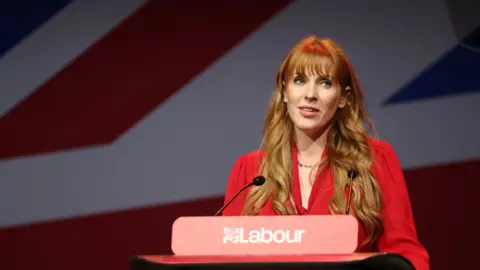The Labour Party has recently decided to postpone its annual Women’s Conference in response to a significant Supreme Court ruling regarding the legal definition of a woman. This decision follows a controversial October ruling in which the Supreme Court concluded that the legal definition of a woman is rooted in biological sex. Prior to this ruling, the Labour Party’s policies had allowed individuals to self-identify as women, permitting trans women to attend events and participate in initiatives like all-women shortlists. However, the ruling has propelled the party into a complex and contentious debate regarding women’s rights and transgender identities.
Trans rights advocates have reacted strongly to the postponement and the implications of the court ruling, characterizing the Labour Party’s response as an “attempt to isolate trans people.” Conversely, gender-critical activists have termed it a “knee-jerk reaction,” illustrating the deep divisions within the party and its supporter base. These tensions reveal broader societal disagreements on gender identity and rights, prompting urgent discussions about the future direction and policies of the Labour Party.
The Labour Women’s Conference is typically held the day prior to the main party conference, gathering hundreds of women activists, lawmakers, and party members for strategic discussions and policy-setting. However, following the leaked recommendations to the party’s governing National Executive Committee (NEC) that suggested postponing the event, fears of potential legal challenges and public protests increased. The document indicated that the only “legally defensible alternative” would be to limit attendance to individuals who are biologically female. This has raised the stakes surrounding the conference, particularly with heightened security concerns and a desire to avoid overshadowing the party’s larger autumn conference, which is scheduled to commence shortly after.
In an emergency session, the NEC voted to delay the Women’s Conference to allow for a comprehensive review of “positive action measures.” Additionally, they chose to postpone the elections for the National Labour Women’s Committee, extending the terms of sitting members instead. These draconian measures are primarily a response to the implications of the ruling, signaling a potential shift away from the previously supported policies of allowing self-identification into various Labour platforms.
Despite this backdrop, a Labour spokesperson conveyed the party’s commitment to ensuring all procedures align with the Supreme Court’s ruling while affording respect and dignity to every individual in society. They highlighted the importance of engaging with party members and local organizations to implement necessary changes sensitively. This commitment to inclusivity sits at odds with the decision to potentially restrict participation based on biological definitions, raising questions about the party’s dedication to diversifying its approach to gender issues.
Critics of the party’s decision have been vocal in their denunciations. Leaders like Georgia Meadows, serving as LGBT+ Labour’s trans officer, condemned the move as a direct attack on trans rights. They firmly articulated the belief that the decision serves to alienate trans individuals within the Labour Party, further complicating the already intricate dynamics of gender identity politics. Supporters of sex-based rights, such as the Labour Women’s Declaration group, expressed their shock at the NEC’s decision to cancel the conference, emphasizing the need for dialogue and policy courses that do not disadvantage the broader female demographic in favor of a select group.
As this turbulent situation unfolds, it exemplifies the increasing complexity of gender politics within mainstream parties. The Labour Party appears to be at a crossroads, with its future policies on transgender rights and women’s issues under immense scrutiny. The intersectionality of these debates continues to challenge established frameworks within political discourses, shedding light on the necessity for nuanced understanding and inclusive dialogue on identity and rights. It remains to be seen how the Labour Party will navigate these turbulent waters, balancing inclusivity while addressing legal and societal concerns stemming from the recent Supreme Court ruling.



